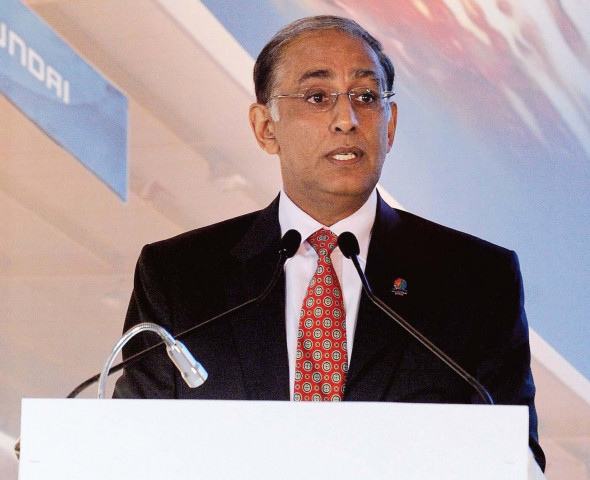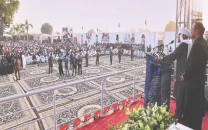Mandatory depoliticisation: Pakistan cricket faces its toughest test yet
ICC gives national cricket boards two years to purge themselves of govt interference.

To end political meddling in the game, the International Cricket Council (ICC) announced a ban on governments’ interference in appointments in national cricket boards, leaving the Pakistan Cricket Board (PCB) in a quagmire.
Boards have two years to implement the decision before they are liable to face stern sanctions.
In Pakistan, the board’s patron-in-chief is the country’s president, who has the authority to appoint the chairman of the national cricket board.
The decision was taken at a meeting of the ICC’s full council after four days of talks between the chief executives’ committee and executive board in Hong Kong.
“The annual conference unanimously supported a proposal to amend the ICC [constitution] to provide for the important principle of free elections and the independence of member boards,” said the ICC media release.
“This is a significant step towards achieving best practices,” said ICC Chief Executive Haroon Lorgat.
The reform, which allows the ICC to suspend a member country in the event of government interference in the running of a national cricket board, is expected to be hugely controversial in Pakistan where the board chairman is viewed essentially a political appointee with sweeping powers – something the incumbent chairman has been criticised for by former players, politicians and the media.
While the PCB’s governing body has no representation from the government, its functioning is not considered ‘democratic’ since every decision requires the ultimate endorsement of the chairman.
Violation of sovereignty
The PCB has already sent a legal notice to the ICC on the amendment and has threatened legal action if the constitution is changed.
Analysts say such an amendment amounts to a violation of member countries’ sovereignty.
“The ICC has no business to tell us how to run our cricket,” said former PCB chief Khalid Mahmood.
“We must resist this because we have to draw a line on sovereignty,” he added. Pakistan, however, appears to be the only country opposing the reform.
The amendment will also affect the boards of Sri Lanka and Bangladesh, where the government interferes in cricket affairs. However, while their respective boards initially opposed the proposal, they ultimately gave a go-ahead to the amendment.
“None of the other boards objected to the amendment after which we had no choice,” a PCB official told The Express Tribune.
Reliance on government
Opponents of the reform also argue that the PCB is too dependent on the government for support. The board has assets worth billions of rupees leased from the government simply because of its engagement with the government.
“The current PCB build-up is actually due to reliance on the government,” a former sports ministry section head for PCB Saeed Ahmed Chaudhry told The Express Tribune.
“The PCB as a whole is a property of the government, and though it is working as an autonomous body, there are stakes involved in it’s build-up,” he said.
“Once you disengage the body from the government, it will be emasculated,” added Chaudhry.
Capacity building
The amendment in the ICC constitution could also collide with the PCB’s governance structure.
While the PCB has regional associations at the grass-roots level that are run democratically through an election process, their competence is questioned by some.
“If you compare the regional head’s capacity with the current chairman Ijaz Butt, you will realise that Butt is several times better than the folks available at the regional level,” said Chaudhry.
The capacity of regional associations is ineffective, and it takes a decade for someone to climb up from the regional to the national level, he added.
Time constraint
Chaudhry said that changing the traditional patterns of running the affairs of national cricket will need more than a year or two.
The ICC executive board gave cricket boards 12 months to implement free elections and granted another 12-month grace period to enact the changes before any sanctions would be considered.
The PCB’s dependence on the government runs deep, Chaudhry said, adding that their immediate disengagement will cause a significant stir.
A PCB official, however, said there is sufficient time “to ensure maximum implementation of the ICC directives.”
“The ICC has promised its assistance and we will be making a plan on its implementation shortly,” the official added.
With additional input from AFP
Published in The Express Tribune, July 1st, 2011.



















COMMENTS
Comments are moderated and generally will be posted if they are on-topic and not abusive.
For more information, please see our Comments FAQ